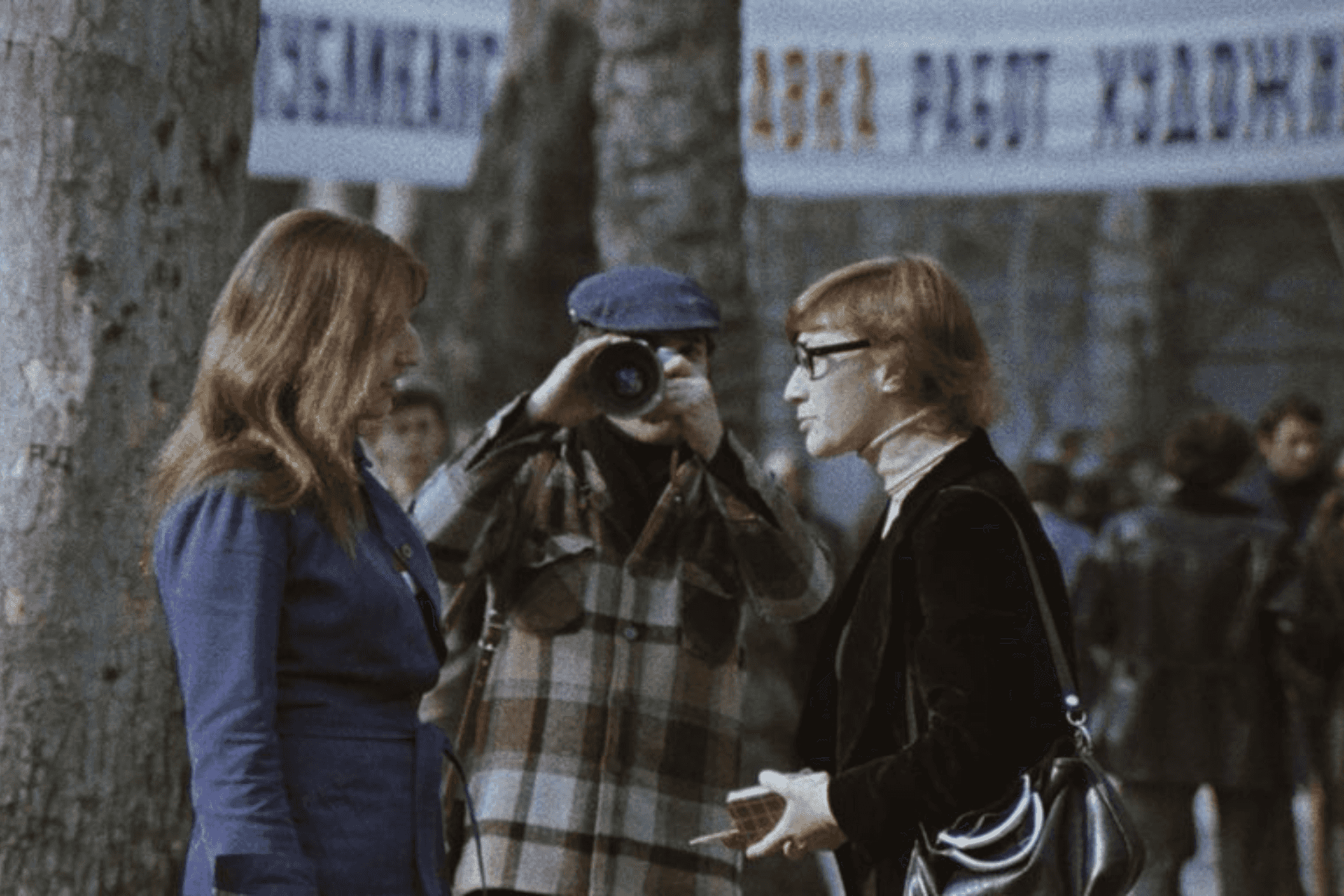Review | Caucasian Blues — a fun romp bringing together Armenians, Azerbaijanis, and Georgians

★★★☆☆
While the ostensibly first true South Caucasian co-production Caucasian Blues falters technically, it makes up for it in humour and sentiment.
Following up on his short YouTube series Dolma Diaries, German director Oliver Müser’s first feature film continues the theme of reconciliation, billing itself as being likely the first joint Armenian–Azerbaijani–Georgian feature film of the modern independence era.
Caucasian Blues (2025) opens in Yerevan, as Armenian human rights lawyer Ani (Nina Karapetyan) decides to cope with being fired by traveling to Tbilisi to sell her grandmother’s apartment. Once there, she re-connects with her Georgian friend Niniko (Niniko Lekishvili), who effectively heads Georgia’s civil society in its fight to survive against her ex-husband, the slimy politician Koki (Giorgi Lomsadze). Walking through the dark streets one night, Ani comes across Emin (Ramiz Mamedov), a young man attempting suicide — the two connect and romance appears to bloom, but the knowledge that she is Armenian and he is Azerbaijani threatens any future bliss.
While at first the film appears to be a bit of a classic, if cheesy, romance — complete with the hurdles of mistaken identities and the classic Romeo and Juliet subplot — it kicks up a notch when Emin becomes embroiled in a shady scheme to send former soldiers to Ukraine, leading his sister Sevinj (Aytac Mammadova) to join Ani and Niniko in a road trip across Georgia to save him. The friendships that emerge between the three young women, despite their ethnic backgrounds, is the film’s true focus, and what in part makes it a film worth giving a try.
The other aspect is its politics-focused humour, most strikingly shown through the characters of Niniko (notably, Lekishvili is a recognisable face in Georgia’s stand-up comedy scene) and Koki. In one of the first scenes, Niniko encounters a Russian asking for help — she jokes that she will help him with 20% less efficiency.
In turn, Lomsadze, a journalist by trade, creates the perfect spoof of Georgian Prime Minister Irakli Kobakhidze, bad wig and all. Uncannily prophesying the Georgian government’s EU U-turn (shooting took place just ahead of the October 2024 parliamentary elections), Lomsadze perfectly captures the epitome of the ruling Georgian Dream party’s anti-EU rhetoric.
‘Georgia only recognises one gender and it is called patriotism’, Koki announces early on in the film, introducing a Patriot Gender Act in Georgia before banning all NGOs from operating.
While its humour and message of reconciliation make for a solid base, the film’s technical aspects are weaker. Almost the entirety of the cast were untrained actors, leading to often stilted deliveries and body language. The cinematography also wavered, with some beautifully laid out shots shown back-to-back with more amateur scenes reminiscent of a student film.
The script itself was also a bit lacking, with the romance between Ani and Emin and even the friendships between Ani and Sevinj feeling rushed. Loose ends in the storyline are also worth noting — for example, while they saved Emin from the shady military scheme, his compatriots already sent ahead seem to just have been left to their own devices with no hope of rescue.
Perhaps this is to be expected in a film almost entirely shot within 15 days and with a script barely finalised before shooting, yet it does drag down the film’s potential on a broader stage than the local South Caucasus NGO scene.
Yet, all that being said, its attempts to truly make an inclusive South Caucasus film are credible. Beyond finding actors and crew from all three countries, Müser also made sure to incorporate one musician from each to create the soundtrack. All three languages are also used throughout the film, with English acting as the lingua franca. That solid friendships emerged between the cast and crew out of this film is a sign that more directors should not let stereotypes and fears get in the way of creating more cross-cultural projects.
Film details: Caucasian Blues (2025), directed by Oliver Müser, premiered at The Skip in Kutaisi on 2 November before being shown in Tbilisi on 4 November at the Goethe-Institut. It will be screened on 6 November in Yerevan and on 8 November in Gyumri. You can find more information on future screenings here.









